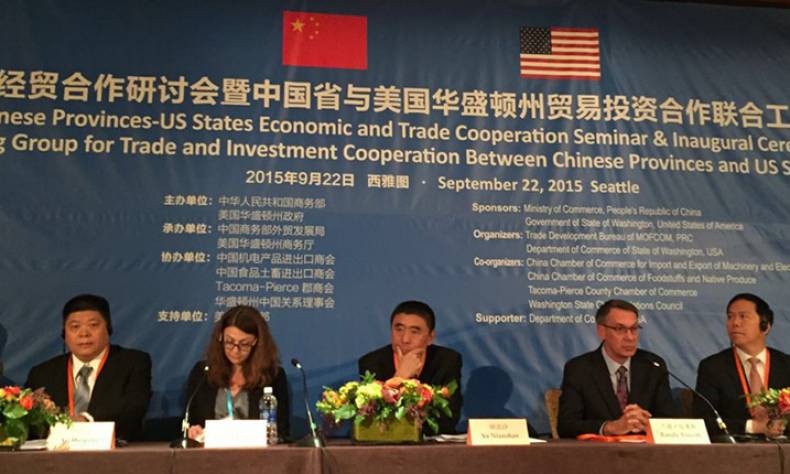
US Restrictions on Chinese Companies Damaging for Both Sides
Washington State’s tech industry, which boasts corporate giants including Microsoft, Boeing and Amazon.com, is an ambitious, innovative, and open business environment. The state government has always attached great importance to Sino-US cooperation in economy and trade, actively encouraging and supporting investment by Chinese individuals and businesses.
What are the motivations of Chinese businesses seeking to enter the US market? Like any other business, profit is always an obvious priority. However, according to Chinese enterprises, there are many other attractions. America’s open, competitive market has led to excellent technology research and development, as well as efficient business operating practices. Chinese enterprises take great pride in establishing a presence in this country and competing and cooperating with their American counterparts.
While Chinese investment in the United States can drive the US economy and stimulate American job creation, Chinese businesses gain invaluable business experience which they can not only use back home, but also in other international markets. By opening its borders to Chinese investment, the United States is improving international business standards while standing by its free market ideals.
The US market is known to be an example of a mature, efficient, and open market. But despite the number of Chinese companies who have attempted to enter the US market, there are very few who can claim major success. In the US financial industry, the real estate industry, and even the manufacturing industry that the US is striving to invigorate, there is very little Chinese corporate involvement-especially from China’s large corporations. Why is it so difficult for Chinese businesses in the US? Are they simply less competitive? While this may be true in some cases, it is not the whole story. The restriction of Chinese investment is costly to both countries’ economies. The Chinese government and the US government should work together to find solutions to remove some of these legislative roadblocks.
Due to China’s economic history, companies founded as state-owned enterprises still represent the majority of large corporations in China. But even though these companies are increasingly evolving towards the private sector there remain the same concerns with them investing in the United States. Large enterprises in China are changing, and the time has come for American restrictions placed on these enterprises to change as well. Irrational restrictions prevent business partnerships with major Chinese enterprises, and also create an atmosphere of legislative uncertainty that discourages other Chinese businesses from investing and creating jobs in the US economy.
Take Poly for example. Poly is a Fortune 500 company that has successfully expanded its businesses in cultural industries, real estate, trade and manufacturing to 70 cities in China and more than 100 countries throughout the world, including the UK, France, Germany, Italy and Japan. Despite this, it is incredibly difficult for Poly to access the US market. Despite strictly abiding by US and international law, Poly cannot get the required approvals to partner with American businesses on many investments in the United States. The term “job creators” is used a lot in America – Poly Group would like the opportunity to create jobs in America too!
The US should not see China as a rival. The rise of China and the continued economic growth of the United States go hand in hand. Despite being one of the world’s oldest civilizations, the modern Chinese economy is one of the world’s youngest, and it is understandable that the world watches China’s meteoric growth with some unease. Hundreds of years of modern economic thought have difficulty describing the process of raising more than a billion people out of rural poverty in a matter of decades, simply because it has never been done before.
(This article is an excerpt from the speech made by Xu Niansha, Chairman of China Poly Group Corporation, at the Seminar on Sino-US Provincial and State-level Economic & Trade Cooperation on September 22, 2015)
 Facebook
Facebook
 Twitter
Twitter
 Linkedin
Linkedin
 Google +
Google +








Comments are closed.